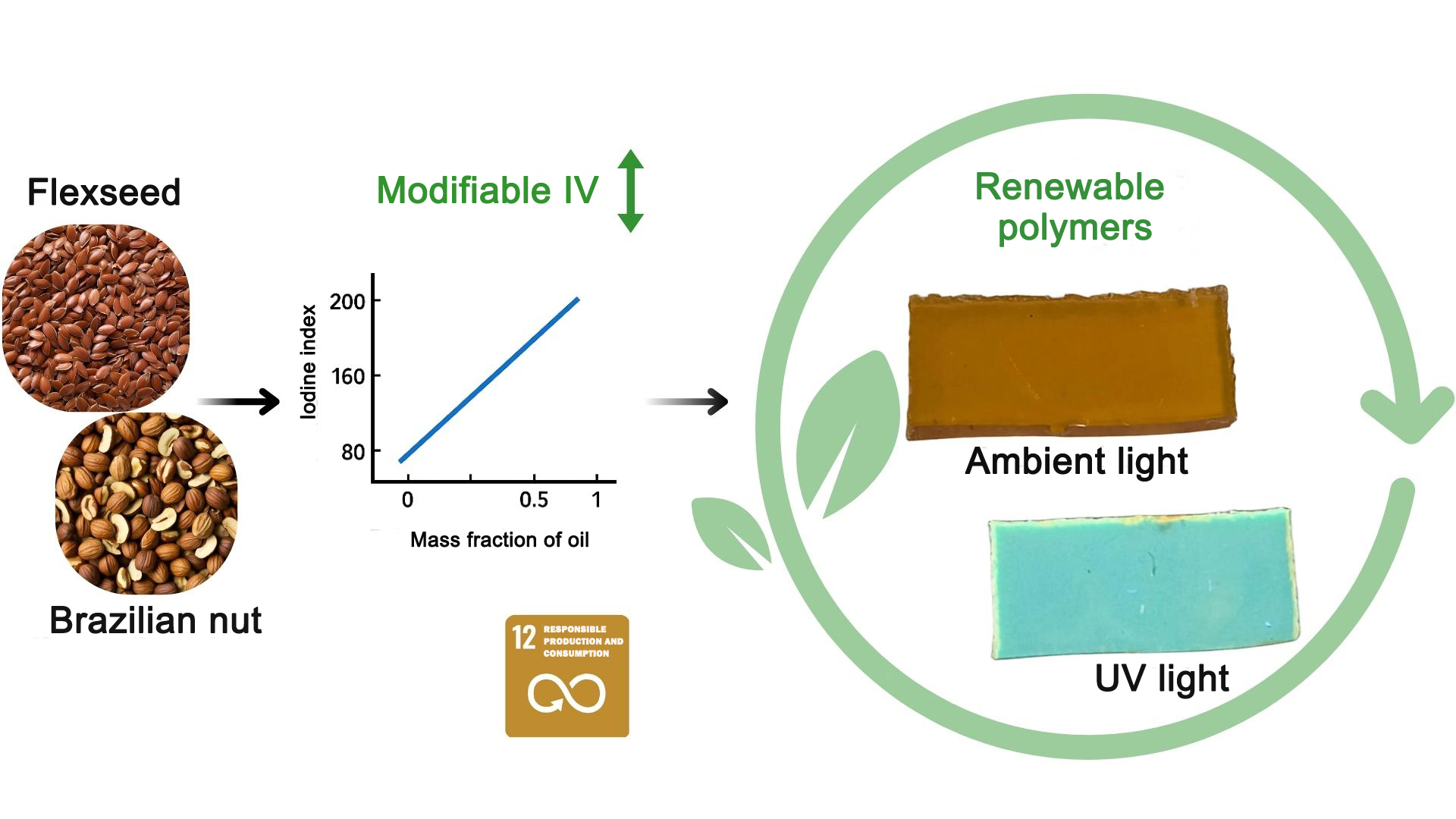

The mixtures were modified through chemical processes and subsequently polymerized (credit: Gabriel Iago dos Santos, Fernanda Barreto dos Santos, and Caroline Gaglieri)
A study conducted at São Paulo State University characterized the properties of a formulation containing chemically modified flaxseed and Brazil nut oils.
A study conducted at São Paulo State University characterized the properties of a formulation containing chemically modified flaxseed and Brazil nut oils.

The mixtures were modified through chemical processes and subsequently polymerized (credit: Gabriel Iago dos Santos, Fernanda Barreto dos Santos, and Caroline Gaglieri)
By Thais Szegö | Agência FAPESP – A mixture of chemically modified flaxseed and Brazil nut oils is a sustainable option for producing plastic biopolymers. This is the conclusion of a study conducted at the Faculty of Sciences of São Paulo State University (FC-UNESP) in Bauru, Brazil, with support from FAPESP (projects 24/02562-0, 21/02152-9, 21/14879-0, 24/00779-2, and 22/03489-0).
The results of the research, which are the subject of an article published in the Journal of Polymer Research, represent good news for the global bioplastics market, which is projected to grow by 400% worldwide between 2022 and 2028.
This rapid expansion creates the need to explore new sustainable and durable raw materials. Vegetable oils are a good option because they are derived from renewable biological sources and are potentially biodegradable. However, the large-scale use of these products in polymer production is hindered by the seasonal and regional availability of the raw materials.
“For this reason, we’re researching the feasibility of using modified vegetable oil blends to obtain polymers with equivalent properties to those produced from individual oils, thus expanding the possibilities for applying these natural resources,” Gilbert Bannach, professor in the Department of Chemistry at FC-UNESP and coordinator of the study, told Agência FAPESP.
To this end, the researchers prepared mixtures of flaxseed and Brazil nut oils in different proportions with the aim of obtaining an iodine index similar to that of pure oil – in this case, grapeseed oil. This index is very important because it indicates the type and quantity of double bonds in the fatty acids in a vegetable oil, which can vary depending on the source, the extraction process, and environmental factors, and can have a significant impact on the final properties of the polymer.
The mixtures were modified through chemical processes and then polymerized. The thermal and mechanical properties of the resulting polymers were very similar to those of derivatives from a single vegetable oil.
“This demonstrated the possibility of adjusting the iodine index, establishing a relationship between this indicator and the composition of the mixture, which allows them to effectively replace pure oils in various applications, such as polymer synthesis,” says Bannach. “Thus, the unavailability of a particular oil can be circumvented by using mixtures with equivalent properties.”
The article “Linear dependence of iodine value on the mass fraction of vegetable oils: a new way to overcome seasonal challenges for renewable polymer manufacturing” can be read at link.springer.com/article/10.1007/s10965-024-04175-1.
Republish
The Agency FAPESP licenses news via Creative Commons (CC-BY-NC-ND) so that they can be republished free of charge and in a simple way by other digital or printed vehicles. Agência FAPESP must be credited as the source of the content being republished and the name of the reporter (if any) must be attributed. Using the HMTL button below allows compliance with these rules, detailed in Digital Republishing Policy FAPESP.





